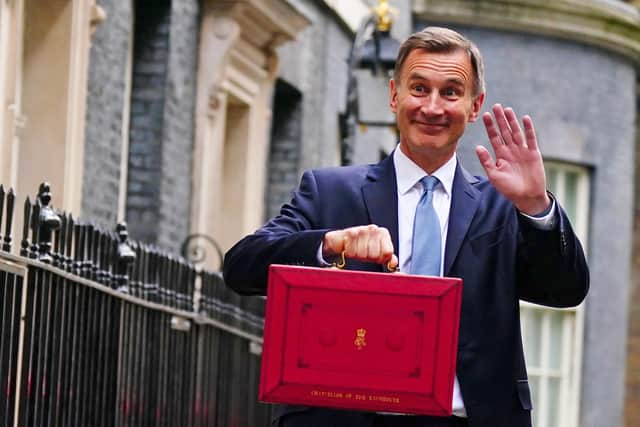Economic turmoil will have consequences for policing and criminal justice - Dr Alan Billings
It was the final piece of the economic jigsaw showing that in 2023 there was stagnation. One major reason for this has been the on-going cost of living crisis: people cannot afford to spend any more on nights out or new clothes.
Looking ahead, there seems good reason to suppose that persistent stagnation will be the story for some years to come. This will have consequences for policing and criminal justice over that time. There is not the money for public services.
Advertisement
Hide AdAdvertisement
Hide AdThis will be compounded by the fact that the urgency for most of our elected representatives in Parliament over the coming months is going to be political as much as economic: they face a general election.


They are keen to have tax cuts in place before people set out for the polling stations. But there is no room to fund tax cuts from economic growth, because there is none.
They will, therefore, have to reduce public spending in order to finance them. But which government departments will have to be squeezed? Choices will have to be made.
We already know that some departments will have their funding safeguarded – the NHS, social care, education and probably defence.
Advertisement
Hide AdAdvertisement
Hide AdThere would be public outcry if the government said it was going to reduce taxes at the expense of health care or schooling. So these departmental budgets will be ‘protected’.
The ‘unprotected’ will include those ministries that cover police and wider criminal justice – prisons, courts, victims’ services – such as the Home Office and Ministry of Justice.
It is highly likely, therefore, that finances for policing from the centre will be reduced in real terms (no allowance for inflation).
There is, though, one tax that the government will almost certainly not reduce: council tax. On the contrary, it will see this as a way of making up for lost revenues at the centre by shifting more of the burden of paying for public services to the council tax payer.
Advertisement
Hide AdAdvertisement
Hide AdThis is what it has done over the past two years in policing by ‘allowing’ PCCs to increase the police precept (council tax) by relatively large amounts – £15, and this year £13, on Band D properties.
In May, there will be elections for new Police and Crime Commissioners or, as in South Yorkshire, for a Mayor with responsibility for policing. There will also be, at some point, a general election.
Many candidates will soon be campaigning for those elections. There will be a temptation to make promises for policing and justice that will involve financial commitments – more police or more police stations, for example.
But in light of all the above, any further spending promises in the coming elections will either have to be broken on the other side of the voting, or existing budgets and plans will be twisted out of shape trying to accommodate new commitments.
Advertisement
Hide AdAdvertisement
Hide AdThe alternative is to promise something different: to put policing on a steady footing, to make sensible savings and improve productivity and efficiency – not the sort of thing that sets voters’ pulses racing.
A shortened version of the Police and Crime Commissioner for South Yorkshire’s latest blog post.
Comment Guidelines
National World encourages reader discussion on our stories. User feedback, insights and back-and-forth exchanges add a rich layer of context to reporting. Please review our Community Guidelines before commenting.